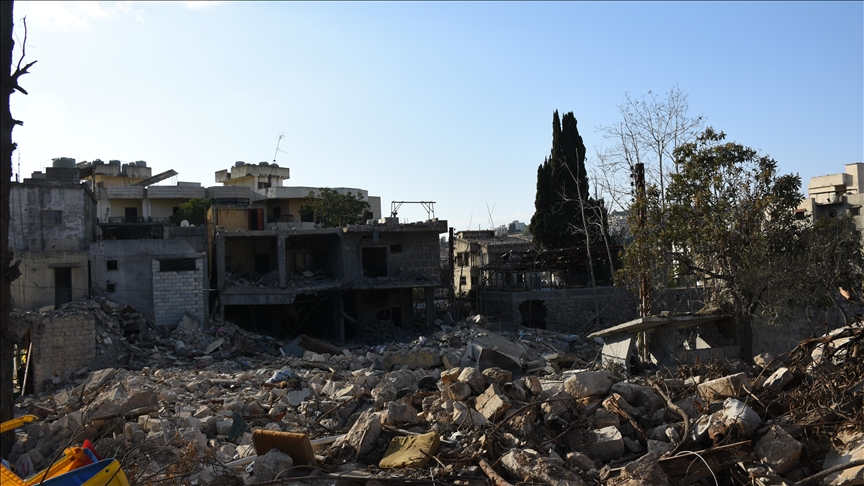The Israeli military targeted and then destroyed several homes in southern Lebanon in the early hours of Sunday, dealing a serious blow to the already precarious peace between Israel and Lebanon. This episode, the most recent in a string of violations, highlights the region’s ongoing instability and raises questions about the increasingly precarious ceasefire that went into effect on November 27.
The seriousness of the situation has been assessed by official records, which state that the Israeli force has violated the ceasefire agreement 287 times, sadly leading to 31 fatalities and 37 wounded. These events are more than just numbers; they signify a sharp rise in hostilities and a significant impact on people’s lives in the area.
Lebanon’s National News Agency (NNA) has reported a particularly distressing incident in the town of Kfarkela, located in the Nabatieh governorate. Numerous homes were demolished, leaving many families displaced and communities in distress. Residents of the Hanin area of Bint Jbeil faced similar fates, with their homes targeted and the ongoing presence of Israeli forces exacerbating tensions.
As crucial infrastructure continues to be destroyed, Israel’s protracted military actions in several areas of Bint Jbeil add to the escalating humanitarian concerns. The civilian population’s everyday life are greatly impacted by these acts, which not only breach the ceasefire agreement but also impede attempts at peacebuilding and rehabilitation.
The number of casualties from the violence since October 8th has been astounding, according to Lebanon’s Ministry of Health. Over 4,061 people have died, with women, children, and healthcare workers—the latter of whom accounted for 222 of the dead—all affected by the destruction. Furthermore, 16,661 people have been hurt, which has increased the region’s urgent need for humanitarian and medical assistance.
The ceasefire, a broad consensus agreement with the aim of creating stability, included some legally binding clauses for each side. Lebanon was put in charge to prevent a battle with either Hezbollah, or any other armed faction of militias, against Israel. In particular, the opposing side also, Israel, also committed to not taking any act of military action by civilians, the military, or the government of Lebanon. Working to implement these promises continues to be a reminder of the failure of these promises and their devastating regional security consequences.
Every step that gets us closer to that breach puts at risk the possibility of communication and collaboration, and all these recent outbreaks of violence just exacerbate that burden to mediate for peace between nations. These impacts reverberate across borders, reaching strategic diplomatic interaction on a grander level. Therefore, with regard to participation and promotion of solutions, the international community is watchful, to shoulder the responsibility of creating and nurturing a climate conducive to sustainable peace.
As long as Lebanese people are compelled to deal with the atrocities its effects, the broader question of lasting peace in the Middle East is not a topic to dismiss. The doings of the last weeks sheds light on the complex and, much of the time, violent daily life for most in the area, a life that deserves prompt action, talking, and solving.
Human costs are high and will intensify the requirement for rapid global response and aid. With the winter season ahead, the homeless populations encounter further difficulties, which demonstrate the need to coordinate relief and reconstruction efforts.
However, (a) restoring the art of dialogue, (b) fulfilment of treaty obligations and (c) working together to prevent the slaughter is crucial.
The events occurring daily put a new dimension on the importance of peace, highlighting the need for continuous and sincere efforts in the direction of dialogue and its finalization. The price of further transgressions is not to be reckoned with only in statistics, (but) in lives irrevocably changed, and communities destroyed, and in the lifetime pursuit of one of those peace continuums the region, is the middle east has to have.








